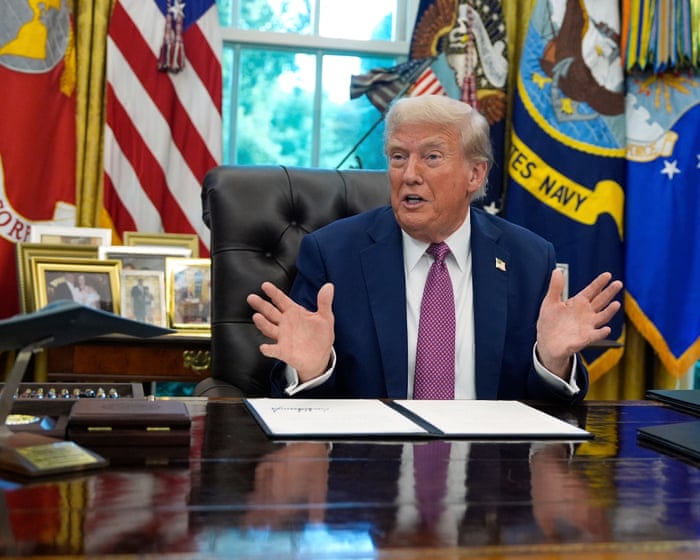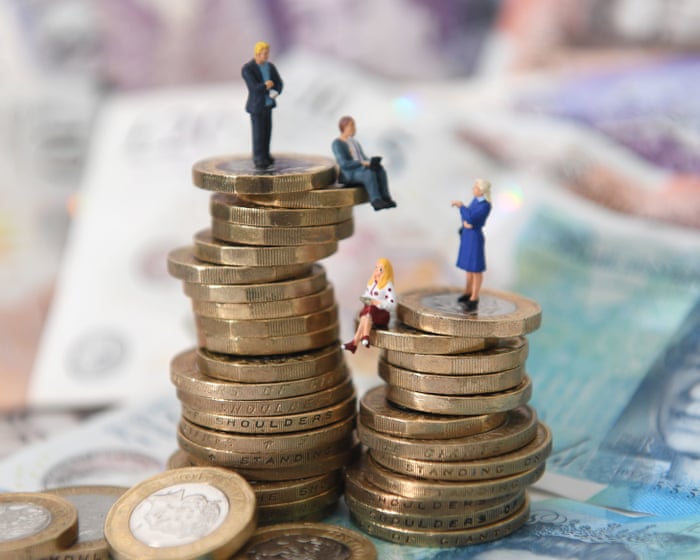During my interview with Vybz Kartel in the courtyard of London’s Four Seasons Hotel at Tower Bridge, a UK government emergency alert test sounded on my phone. Startled, he jumped up and exclaimed, “Me ready fi run you know!” making us both laugh.
The moment was humorous yet jarring, as it interrupted his discussion about the lasting psychological impact of prison. Kartel, whose real name is Adidja Palmer and is now 49, was imprisoned in various Jamaican facilities after being convicted for the 2011 murder of his associate Clive “Lizard” Williams. After a lengthy appeal, his conviction was overturned by the UK Privy Council—Jamaica’s final court of appeal due to its colonial history—and he was released last July.
At the time of his arrest, Kartel was one of Jamaica’s biggest dancehall stars. He rose to fame in 2003 with his album “Up 2 Di Time,” known for its provocative themes, edgy content, and his rapid-fire, gravelly yet versatile “toasting” vocal style. Influenced by raw DJs like Ninjaman, his sound marked a departure from the smoother reggae of artists like Bob Marley and Peter Tosh. Hits such as the 2009 erotic duet “Romping Shop” with Spice, the 2010 anthem “Clarks,” and the vibrant 2011 track “Summer Time” helped him break into British and American charts.
By the early 2010s, he had firmly claimed the title King of Dancehall, previously held by Beenie Man. But today, he serves as a reminder that even kings face deep turmoil. Reflecting on life after prison, he shared, “My sleeping habits have changed… if I hear a key shake, it traumatizes me”—a reaction to guards jingling keys before inmate head counts. After his release, he heavily relied on smoking and drinking, habits he still leans on. Despite this, he refuses therapy, saying, “I understand what I’m going through and I just let it work itself out.”
It’s humbling to see Kartel so vulnerable. He’s not withdrawn; in fact, he’s cheerful and jokes around, like when he noticed my pleated black trousers and sang a line from his song “Empire Army” referencing Issey Miyake. Yet, prison has clearly left its mark, contrasting sharply with his public displays of triumph. Just days before our meeting, I saw him perform at London’s O2 Arena, where he started the show in a mock cell before emerging in a glittering red Givenchy outfit to perform his recent hit “The Comet,” which anticipates his release with the memorable line, “Me fuck yuh madda through di prison grill.”
While some believed Kartel received special treatment in prison, the reality was grim. In 2014, he was diagnosed with Graves’ disease, an autoimmune condition worsened by prison conditions. Reports described Jamaica’s Tower Street Adult Correctional Centre as filthy and inhumane. In his release affidavit, Kartel expressed fear of dying in prison due to his heart functioning at only 37% capacity. “I was in urgent need of medical help that the state could not provide,” he said. Upon release, his health was so poor that he struggled to breathe and walk during his New Year’s Eve homecoming concert in Kingston. Since then, a diet of whole foods and green juices has helped him recover, and he felt pleased with his more energetic performance at the O2.
“I’m pushing love and unity—stuff I should have been doing years ago. But sometimes you pay to learn.”Vybz Kartel was once dancehall’s biggest success story, but he had to watch from prison as the genre broke into the mainstream. In 2016, Drake featured the sound on his album Views and signed Kartel’s protégé Popcaan to his OVO label. “It didn’t feel good, but I’m the type of person who’s going to find a way,” Kartel says. Despite being incarcerated, he continued releasing music prolifically—dropping 50 new songs in 2016 alone. Rolling Stone noted that he “still rules dancehall.” He points to the global hit “Fever,” which went gold in the U.S. and silver in the U.K., as proof of how he harnessed the genre’s momentum—all while recording lyrics in Tower Street prison using an iPhone 5S.
Kartel believes his years in jail unfairly stole a significant part of his life. After a 2011 arrest for marijuana possession, he was held in custody and charged with the murder of Jamaican businessman Barrington “Bossie” Burton—a charge for which he was acquitted in July 2013—and later with the murder of Clive “Lizard” Williams. When asked if he felt set up, Kartel replied, “Of course I was set up, because I’m innocent. They always try to pin stuff on me, saying I influence gangsters. They claim my circle is questionable, which, in their defense, was true.”
Kartel denies that his relationship with Lizard had ever soured. However, evidence presented at his 2014 trial, where he and three co-defendants all pleaded not guilty, suggested otherwise. Police alleged Lizard was killed after stealing two guns from Kartel and his Portmore Empire crew. The court was shown messages from a device believed to be Kartel’s, which read: “Between me and you, we chopped up Lizard fine fine… As long as you live, they can never find him.” Lizard’s body has never been recovered. While these texts appeared to be a confession, Kartel’s appeal lawyers argued there was evidence of phone tampering.
Kartel remains adamant: “I did not kill Lizard… and they know who did what.” He suspects collusion among Jamaican authorities to bring him down. Whether Kartel is guilty remains a matter of public debate, but it’s clear many wanted him removed from public life. Before his imprisonment, his “gunman” tracks, explicit lyrics known as “slackness,” and promotion of hate speech were seen as fueling a wave of violence in Jamaica.
This included the Gully-Gaza feud, a violent rivalry between Kartel and fellow dancehall artist Mavado. A 2009 article in the Jamaica Gleaner lamented that their followers were “shooting, stabbing, and beating one another.” (Kartel and Mavado have since reconciled, and their sons now attend each other’s birthday parties.) By 2010, Kartel was banned from several Caribbean nations, including Grenada, Barbados, and St. Lucia. Even the deadly Wadando-Gaza gang in Nairobi, Kenya, is said to have drawn inspiration from him.
Today, Kartel says he is “pushing love and unity—stuff I should have been doing years ago. But sometimes you pay to learn.” He admits his earlier lyrics contained violent themes but refuses to be made a scapegoat, arguing that his “hardcore” music reflected the reality of growing up in the ghetto. “The system created that reality for us as ghetto youth. The violence came with politics. The first round of violence that ever reached Jamaica? 1976,” he says, referring to the political violence that escalated around that year’s general election.The year saw an estimated 200 political murders. It was also when reggae icon Bob Marley was shot in Kingston, just two days before the Smile Jamaica concert aimed at bridging political divides. That same year, Kartel was born.
Although Kartel grew up in a stable, two-parent home in Portmore with positive role models, he notes that his parents couldn’t supervise him constantly. “I was born into violence. The streets were always calling. That’s how most ghetto youth end up in trouble.”
He points to his recent acquisition of European and American visas as proof that the world recognizes his transformation, emphasizing that “these visas aren’t easy to get.” His first UK public appearance after prison was at this year’s Mobo awards, where he received an Impact award for his contributions to music and culture—a stark contrast to 2012, when his nomination for best reggae act was withdrawn after he refused to apologize for homophobic lyrics.
I took the chance to ask him about those lyrics and whether he regrets them, feeling at ease with his openness to share that I’m gay. “I do regret it, because culture is powerful,” he says. “We were just repeating what earlier entertainers had said. In Jamaica, we picked up a lot of homophobia from the church. I would never do that now. I believe people should live freely, no matter who they are or who they love—do your thing!”
He has other regrets too, like bleaching his skin (he launched a line of skin-lightening products in 2011). He told himself it was to make his tattoos more visible, but reflects, “Looking back, I think it was that colonial mindset that makes Black people think white is right.” He won’t bleach again: “That’s bullshit, man.”
However, this anti-colonial attitude doesn’t fully define Kartel’s views. His experience with Jamaica’s justice system has not only eroded his faith in the country but turned him into a supporter of Britain. His Instagram bio includes “Long live the king” and a Union Jack flag. He praises the UK privy council for delivering justice and opposes calls for a Caribbean Court of Justice, led by Barbados’ Prime Minister Mia Mottley, believing Jamaica is “too corrupt.” “I went through the system and saw it destroy people without money,” he says. “I have money, and look how long it took me to get justice. So no, I’d never support that court of appeal.”
Kartel also stays out of Jamaican politics, backing neither the ruling Jamaica Labour Party nor the opposition People’s National Party. In his 2015 song “Pound of Rice,” he declares, “mi ah vote fi di pool party!” He even imagines running for office on a platform of…He aims to use his platform in “education, sports, and entertainment” to support those from the ghetto, but he’s clear that he must remain independent, saying, “They would probably try to kill me. I’m not even joking.” Despite this, he often finds himself unintentionally drawn into political matters. His surprise appearance at last year’s PNP annual conference was seen as an endorsement, though he insists he was only there to back his lawyer, Isat Buchanan, who recently secured a parliamentary seat. More recently, he defended himself against critics who questioned his sharing of the Jamaican government’s emergency response to Hurricane Melissa, stating, “This isn’t about politics; it’s about Jamaica.”
These days, Kartel is focused on staying out of trouble and expanding dancehall’s global reach. He’s seeking collaborations with Afrobeats artists who have gained international fame and aims to balance commercial success with artistic authenticity. He wants his music to become universal classics, like Bob Marley’s “One Love,” which everyone can sing along to. In contrast, he mimics dancehall’s rapid-fire style with nonsense words to illustrate its unique energy, adding, “But people love it. I call it the biggest underground music on the planet. Once we get it onto global playlists, we’re good.”
Above all, he’s embracing his freedom. He prays daily and plans to remove old tattoos of a devil’s head and the 666 symbol as he seeks a purer path. Though he’s still dealing with health issues, he feels positive, saying, “I tell you, nothing can ruin my day or my energy. I’ve got a new lease on life.”
Vybz Kartel’s album “Heart & Soul” is now available.
Frequently Asked Questions
Of course Here is a list of FAQs about Vybz Kartels interview designed with clear questions and direct answers
General Beginner Questions
1 Who is Vybz Kartel
Vybz Kartel whose real name is Adidja Palmer is a hugely influential Jamaican dancehall artist songwriter and producer He is often called the World Boss of the genre
2 What legal struggles is he referring to
He is referring to his 2014 murder conviction for which he is currently serving a life sentence in Jamaica He has maintained his innocence and his legal team has been appealing the conviction for years
3 What did he mean by The sound of a jingling key still haunts me
This is a powerful metaphor for the lasting psychological trauma of imprisonment The sound of a jailers keys represents a loss of freedom and control and the fact that it haunts him shows how deeply his time behind bars has affected his mental state even years later
4 Why is he so famous for his explicit songwriting
Vybz Kartel is known for pushing lyrical boundaries with raw unfiltered and often sexually explicit content This made him a controversial but dominant figure in dancehall as he sang openly about street life relationships and social issues in a way that resonated with many fans
Deeper Advanced Questions
5 What is the current status of his murder conviction
As of late 2023 his case was heard by the UKbased Privy Council Jamaicas final court of appeal They have reserved their judgment A decision in his favor could lead to a retrial or even his release
6 How has his music changed since hes been in prison
Remarkably he has remained incredibly prolific recording and releasing new music from behind bars His music often reflects on his incarceration the legal system his legacy and his personal struggles showing a more introspective side
7 What are the deep emotional wounds he mentioned
These refer to the psychological impact of longterm incarceration such as isolation anxiety depression PTSD from the prison environment and the pain of being separated from his family and career
8 How does he manage to record music while imprisoned
Its widely reported that he records vocals on contraband mobile phones



